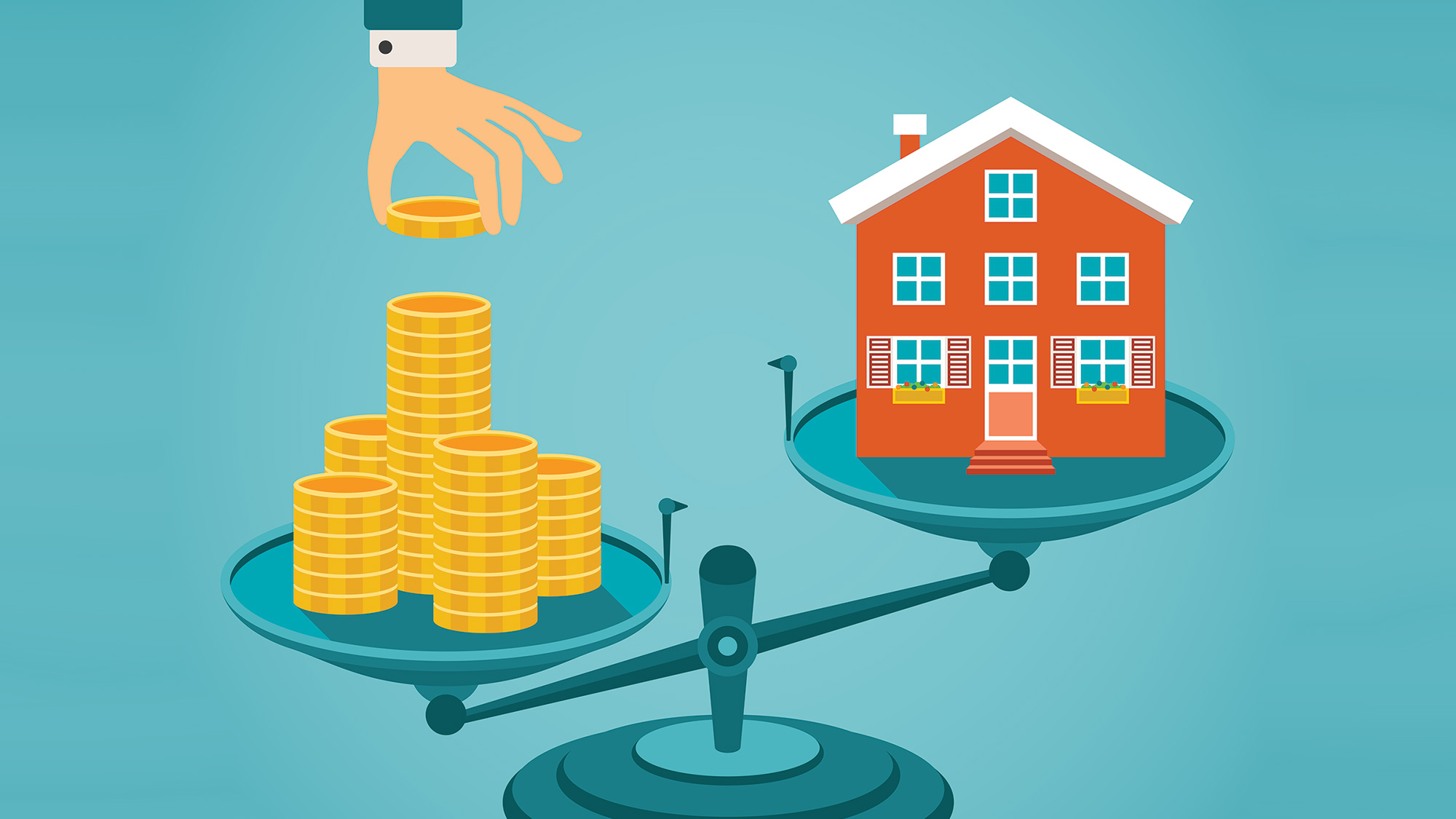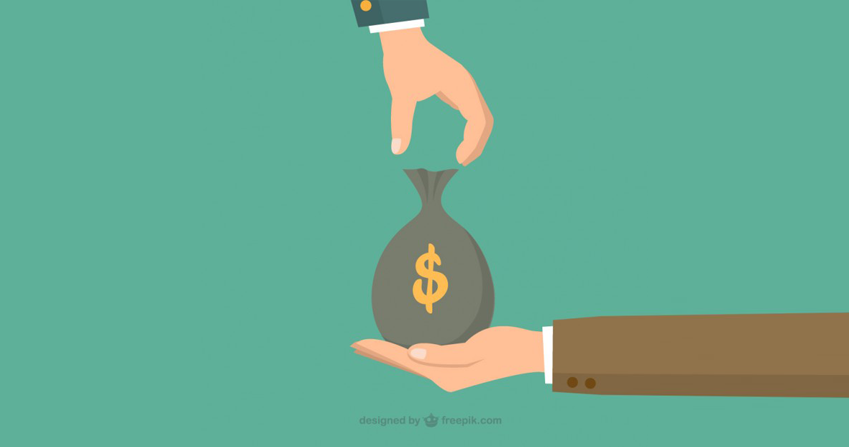
Knowing the cost of buying a Singapore residential property and working out your budget to buy a property is a good start when it comes to buying a property. However, it is equally important to know the cost of owning the property. You do not want to be weighed down by unexpected monthly expenses that come with owning the property, and you definitely do not want to end up becoming a slave for your property. Thus, we have published this guide so you are fully aware of the different costs that come with owning your own property.
Cost of Owning a Residential Property
- Interest Payment
- Property Tax
- Rental Income Tax
- Maintenance Fee / Conservancy Fee
- Upkeep
- Agent & Marketing Fee
- Insurance
1
Interest Payment
If you have taken a housing loan to finance your property, interest payment forms bulk of the cost of owning/financing your residential property. Say, you have taken a loan of S$800,000 to purchase your $1,000,000 property with a loan tenure of 30 years at an average interest rate of 2.5%. By the time you pay up your loan, you would have paid a whopping $337,948 in interest! If you would like to find out how much interest you are paying for your loan, you may use Mortgage Repayment Calculator to estimate the interest you have to pay.
2
Property Tax
Property tax is payable for both owner-occupied and non-owner-occupied residential properties. The property tax is calculated by multiplying the Annual Value (AV) of the property with the Property Tax Rates as shown in the table below. Annual Value refers to the estimated gross annual rent of the property if it were to be rented out, excluding furniture, furnishings and maintenance fees. It is determined based on estimated market rentals of similar or comparable properties.
Owner-Occupied Tax Rates
| Owner-Occupier Tax Rates | |
| Annual Value ($) | Effective 1 Jan 2015 |
| First $8,000 | 0% |
| Next $47,000 | 4% |
| Next $15,000 | 6% |
| Next $15,000 | 8% |
| Next $15,000 | 10% |
| Next $15,000 | 12% |
| Next $15,000 | 14% |
| Remaining Annual Value | 16% |
Example 1: Property Tax Payable for Owner Occupied Property with AV of S$36,000
| Annual Value ($) | Tax Rate Effective 2015 | Property Tax Payable |
| First 8,000 | X 0% | = 0 |
| Next 28,000 | X 4% | = $1,120 |
| Property Tax Payable for 2015 | = $1,120 | |
Example 2: Property Tax Payable for Owner Occupied Property with AV of S$120,000
| Annual Value ($) | Tax Rate Effective 2015 | Property Tax Payable |
| First 8,000 | X 0% | = 0 |
| Next 47,000 | X 4% | = $1,880 |
| Next 15,000 | X 6% | = $ 900 |
| Next 15,000 | X 8% | = $ 1,200 |
| Next 15,000 | X 10% | = $ 1,500 |
| Next 15,000 | X 12% | = $ 1,800 |
| Remaining 5,000 | X 14% | = $700 |
| Property Tax Payable for 2015 | = 7,980 | |
Non-Owner-Occupied Tax Rate
| Residential Tax Rates | |
| Annual Value ($) | Effective 1 Jan 2015 |
| First 30,000 | 10% |
| Next $15,000 | 12% |
| Next $15,000 | 14% |
| Next $15,000 | 16% |
| Next $15,000 | 18% |
| Remaining Annual Value | 20% |
Example 3: Property Tax Payable for Non-Owner Occupied Property with AV of S$36,000
| Annual Value ($) | Tax Rate Effective 2015 | Property Tax Payable |
| First 30,000 | X 10% | = $3,000 |
| Next 6,000 | X 12% | = $720 |
| Property Tax Payable for 2015 | = $3,720 | |
Example 4: Property Tax Payable for Non-Owner Occupied Property with AV of S$120,000
| Annual Value ($) | Tax Rate Effective 2015 | Property Tax Payable |
| First 30,000 | X 10% | = $ 3,000 |
| Next 15,000 | X 12% | = $ 1,880 |
| Next 15,000 | X 14% | = $ 2,100 |
| Next 15,000 | X 16% | = $ 2,400 |
| Next 15,000 | X 18% | = $ 2,700 |
| Remaining 30,000 | X 20% | = $ 6,000 |
| Property Tax Payable for 2015 | = $ 18,000 | |
3
Rental Income Tax
If you are renting out your residential property and are receiving rental income from the property, any rent payments you receive are subjected to income tax and must be declared on your income tax return. If you are a tax resident in Singapore, your net rental income will be taxed at resident rates. If you are a non-resident in Singapore, your net rental income will be taxed at the prevailing rate of 20%.
In general, rental income refers to the full amount of rent and related payments you receive when you rent out your property. This includes rent of the premises, maintenance, furniture and fittings. For expenses that are incurred solely for producing the rental income and during the period of tenancy, these expenses may be claimed as a tax deduction. You may refer to the list at IRAS to find out the allowable and non-allowable expenses.
4
Maintenance Fee / Service and Conservancy Charges
For a private condominium, the maintenance fees cover the maintenance and upkeep of facilities like servicing of swimming pools, gardening, cleaning of common area, paying for condo staff like security guards, cleaners etc. Typically, part of the maintenance fee is also channeled into the sinking fund of the condo, which can be used for enhancement of property. This may include painting of common areas, replacement of common fixtures, indoor gym equipment etc.
The maintenance fee payable is dependent on the size, amount of facilities to maintain, location, quality and age of the development. It is usually calculated based on the share value of each residential unit. The cost is around $200+ per month for 1 bedroom condominium and can go up to $400 to $500 per month for 3 bedrooms in a mass market condominium. For luxury developments, the fees can go up to $1,500 per month.
For HDB flats, service and conservancy charges are payable to their respective town councils. The funds collected are used for maintaining the common areas of the HDB. Charges vary depending on the type of flat you are staying in and the town council you live in.
The cost is around S$55 per month for a one-room HDB flat to around S$95 per month for executive apartments. However, households eligible for reduced rates needs only pay around S$20 for a one-room HDB flat.
5
Upkeep
As the property ages, the furniture, fittings, fixtures, appliances, piping, electrical wiring may have to be repaired and replaced due to wear and tear, adding up to the cost of owning the property.
6
Agent & Marketing Fee
If you are renting out your property, there will be costs involved in engaging a property agent in marketing your property and securing your tenant. The agent fee is typically equivalent to your one month’s rent ,collectible for every two years lease. If you plan to market your property yourself, you may have to pay listing portal or newspaper for advertisement slot, which is typically S$30 to 40 per listing exposure. There are also listing portals like Gumtree, Craigslist, Nestia etc. where it is free to list your property for rent.
7
Insurance
Home contents insurance is an optional expense. Usually, the home contents insurance covers the loss of, or damage to, your personal belongings and the non-original fixtures of your home, including any renovated sections. If you are renting out the property, your tenant will be responsible for acquiring their own home content insurance to protect their own personal belonging within the property. The annual premium ranges from around S$70 to thousands of dollars depending on the value of good insured.
Mortgage insurance. (Optional) If you are servicing a mortgage, it is recommended that you look into getting a mortgage insurance which covers the cost of your remaining mortgage repayments for your dependents in the event of your death, disability or illness. The cost depends on the value of your home and type of cover chosen.
Fire insurance:
HDB flat owners with an HDB loan commencing on 1 September 1994, or after, are required to buy fire insurance for their home. As long as you have an outstanding HDB loan, you must renew your fire insurance if it has expired. The fire insurance covers internal structural damage and damage to original fixtures and fittings (but not damage to furniture or home contents), in the case of a fire or similar event. The cost ranges from $1.50 for a one-room flat to $7.50 for an Executive or Multi-Generation flat for a five-year term.
For Condominium/Private Apartment ,where the block is registered as a Management Corporation Strata Title (MCST) Property, the Management Corporation is responsible for insuring the property against fire. Most, if not all, condominium are registered under MCST Property.
For Landed Property Owners, you can take out fire insurance from any provider. However, fire insurance only covers the cost to rebuild your property and not the market value of your home.
Above are the costs that may be incurred while owning a property. Although the actual costs incurred will vary depending on the type, age & size of your property you buy, we do hope that knowing these costs will prepare you for the long-term financial obligation for owning a property, on top of the monthly mortgage repayment. If you have any feedback on this article or any questions relating to Singapore Property, do write to us at hello@realila.sg.
Planning to Buy a Singapore Property?
Work out your budget and expenses for your property in minutes with Realila Property Budget Calculator. ABSD, TDSR, LTV etc. accorded for by the calculator. Try it today.
It’s FREE, RELIABLE & SECURE.



